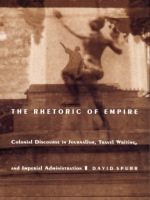
We assume that words are posted (mailed or, in another sense, positioned) to communicate with others, to bridge distance and “wish you were here.” But Vincent Kaufmann discovers in his chosen letter writers the urgency not to communicate, to keep their correspondents away and, as it were, posted. The writer avoids real-life dialogue by way of letters, which then become proving grounds for the work to come. Whatever their intellectual, biographical, or aesthetic value—compare Flaubert’s passionate dogmatizing to Baudelaire’s peevish nagging for money—letters teach writers how to appreciate the sound of their own voice and how to make a workable literary space. Distance gives the relentless letter writer the chance to become a writer. Kaufmann, with Lacan, says that what characterizes the literary text is the ability to get beyond a particular other to address the Other, which must be no one in particular.
Kaufmann features several European writers, all of them avidly concerned about the destination of speech when it passes into writing. Among them: Kafka, obsessions spilling over, adoring his fiancee for her emptiness; Proust, master of suffering, with his interminable health bulletins, cancellations, and condolences; Flaubert, an extraordinary letter writer, abandoning his mistress for the more seductive Emma Bovary; Baudelaire, determined in squalor, writing letters almost exclusively about his debts, as if to practice the art of escape and defiance; Mallarmé, patron saint of littérateurs, whose vaunted Book disappears into salons and letters; Artaud, speaker in tongues, who wildly searched for authenticity through letters.
Unending attention has been devoted to these important writers, but they seem new again when viewed in Kaufmann’s epistolary mirror. What they share is a taste, or need, for distance and perversion; we see them becoming “inhuman” in order to textualize their lives. They are all modernists, and the definition of Modernism is thereby deepened. This book—rich in anecdote and humor—escorts literary theory into the no-man’s-land stretching between the life and the word.

Despite historical differences among British, French, and American versions of colonialism, their rhetoric had much in common. The Rhetoric of Empire identifies these shared features—images, figures of speech, and characteristic lines of argument—and explores them in a wide variety of sources. A former correspondent for the United Press International, the author is equally at home with journalism or critical theory, travel writing or official documents, and his discussion is remarkably comprehensive. Ranging from T. E. Lawrence and Isak Dineson to Hemingway and Naipaul, from Time and the New Yorker to the National Geographic and Le Monde, from journalists such as Didion and Sontag to colonial administrators such as Frederick Lugard and Albert Sarraut, this analysis suggests the degree to which certain rhetorical tactics penetrate the popular as well as official colonial and postcolonial discourse.
Finally, Spurr considers the question: Can the language itself—and with it, Western forms of interpretation--be freed of the exercise of colonial power? This ambitious book is an answer of sorts. By exposing the rhetoric of empire, Spurr begins to loosen its hold over discourse about—and between—different cultures.
READERS
Browse our collection.
PUBLISHERS
See BiblioVault's publisher services.
STUDENT SERVICES
Files for college accessibility offices.
UChicago Accessibility Resources
home | accessibility | search | about | contact us
BiblioVault ® 2001 - 2024
The University of Chicago Press









